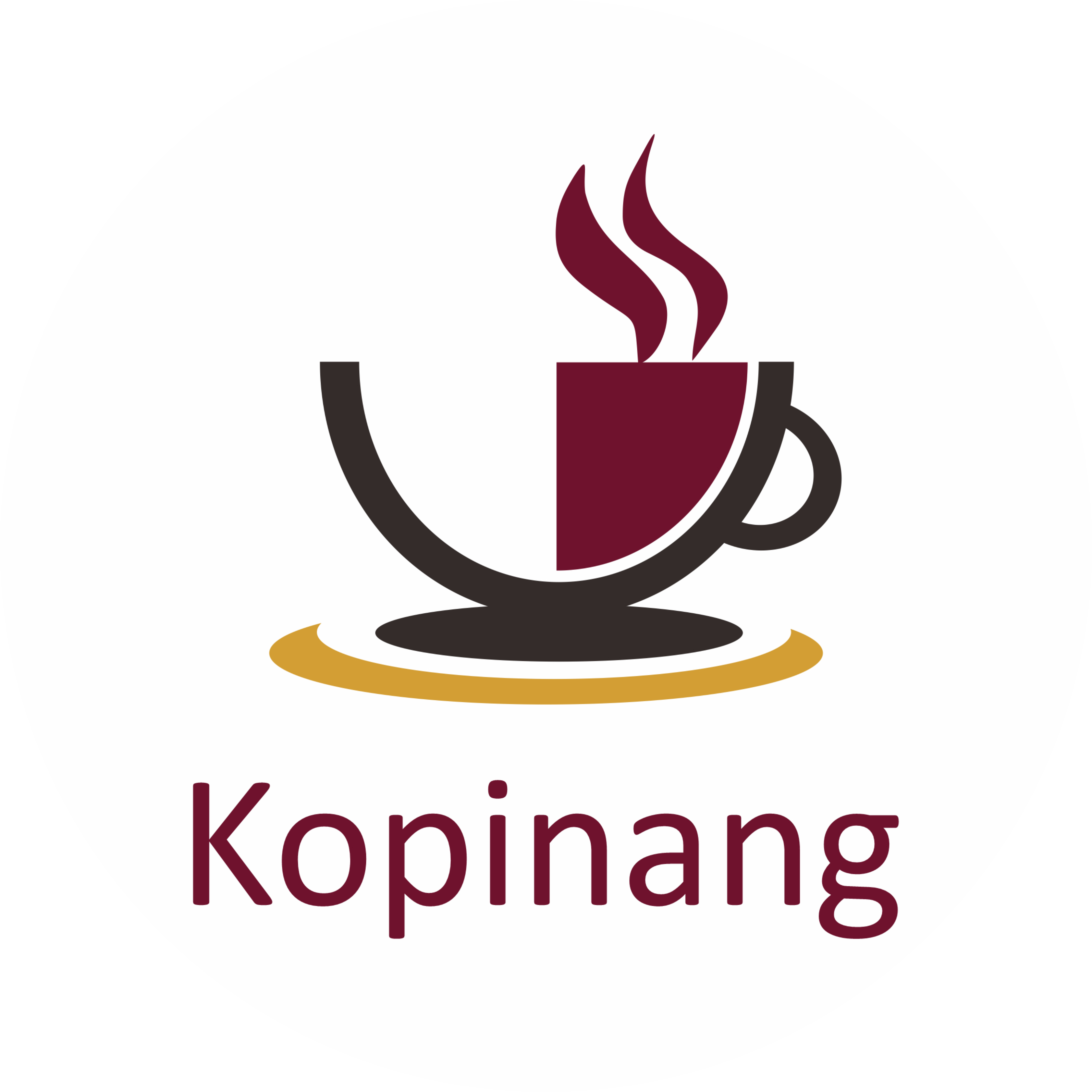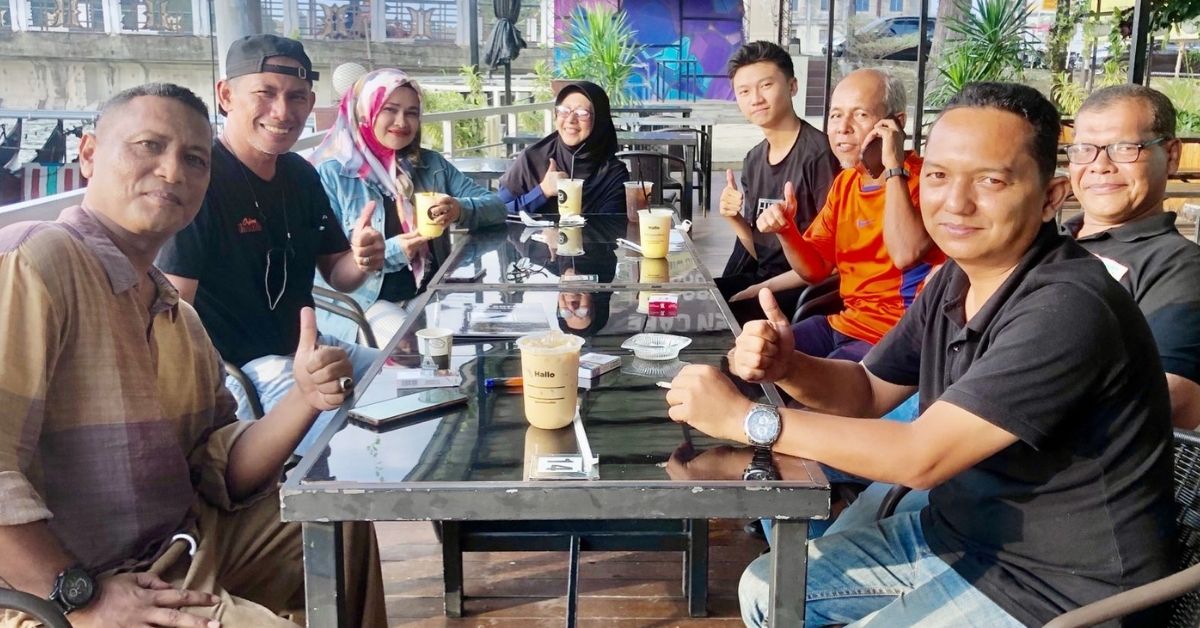There’s no denying that Covid-19 has drastically changed the coffee sector through 2020 and 2021. Reports suggest that through the entirety of 2020, the value of the US coffee shop sector fell by as much as 24%, mainly because of café closures.
But it wasn’t just the retail sector that took a hit. Before the pandemic, roasters and coffee shops around the world had started to offer a range of educational workshops or classes. However, during the pandemic, most were forced to stop because of premise closures, social distancing measures, and stay-at-home orders.
In response, many of the coffee sector’s educational resources have shifted to online platforms. But how has this changed how people learn and teach more widely? To learn more, I spoke to Chahan Yeretzian and Sabine de Castelberg from the Zurich University of Applied Sciences (ZHAW). Read on to find out what they said.
COFFEE EDUCATION BEFORE COVID-19
Before the pandemic, most coffee education courses took place at cafés or roasteries. One of the most foremost examples is the global SCA Coffee Skills programme, which is held by local SCA-authorised trainers in over 120 countries.
Chahan is the head of the Coffee Excellence Centre at ZHAW and an initiator and instructor on the CAS Coffee Excellence programme – a blended online coffee education course launched in April 2021.
“We have more than 10 years of experience with postgraduate education in coffee. In 2010, we started with a biennial German-language course to target the local community,” he explains. “It is face-to-face and extends over 11 months.
“Participants meet every Friday for hands-on education sessions, and also have self-study assignments as well as a final thesis project to work through.”
Sabine notes that the sensory aspect of coffee significantly shapes how students learn in this fully face-to-face program. In order to understand how origin, processing, and roasting affect flavour and aroma, it’s critical for course participants to brew and taste coffee.
Before the pandemic, this meant students would attend classes in-person – allowing them to brew and cup coffee, as well as steam and pour milk.
“Beforehand, we didn’t even think about doing the course online,” Chahan says. “Everything was hands-on. What’s different today is that there is already a growing large pool of highly educated coffee professionals who are much more able to cope with online formats and technology.”
A few years after they launched the German course, however, Chahan says that other industry stakeholders helped drive the development of the CAS in Coffee Excellence programme.
“The Coffee Excellence Centre worked on a project with Nespresso at the time,” he says. “They were interested in an exclusive blended e-learning postgraduate programme. After two years of joint development, it was launched in 2017. We learned a lot in that process.
“After that, we went back to our own project: launching CAS on Coffee in English, to make our coffee education program accessible for international students.”
THE SHIFT TO ONLINE
Around the world, the education sector took a huge hit during the pandemic. It’s estimated that globally, some 1.2 billion students were forced to learn from home in April 2020.
For coffee education, it was the same story. When 95% of out-of-home coffee businesses closed from March 2020, in-person coffee courses also stopped.
Sabine is the Head of Continuing Education in Coffee at the Coffee Excellence Centre. “Online is a different approach than face-to-face,” she says. “It’s a different learning experience, and the material, format, and pace has to be different.”
Chahan adds that the pandemic was a key factor in ZHAW’s decision to launch the CAS in Coffee Excellence programme – an open access blended e-learning programme focused on coffee.
“When the Covid-19 pandemic started, we accelerated the start of the CAS in Coffee Excellence,” he says. “However, the fact that we were working on it for four or five years before that helped us.
“We launched it in April and were overrun by the number of people wanting to register. Now we’re running a second class this year.”
The programme is part-time for 12 months, with graduates earning a postgraduate diploma from the Coffee Excellence Center of ZHAW. It is an English-language course held in partnership with the SCA and Sanremo Coffee Machines, and allows participants to apply from anywhere in the world.
Chahan says that this has shaped how the Coffee Excellence Centre has structured the programme.
“Because of different time zones, every virtual classroom is held twice in a day,” he says. “Sometimes it’s similar, but sometimes we try to make different points or include different guests.
“For example, a morning session on processing included Sasa Šestić, while the afternoon session featured Mario Fernandez-Alduenda from the SCA.
“We have different experts joining our virtual classrooms and this allows for different perspectives of the same subject. Plus, everything is recorded and uploaded to an e-learning platform, so every student can watch the class in case they miss anything.”
Chahan adds that the presence of participants from across the world also helps to showcase different cultural perspectives on coffee.
“The virtual classrooms demonstrate how multicultural coffee is,” he says. “You have people from Australia, Canada, Dubai, Saudi Arabia, Indonesia, the US, Europe, Central and South America… the list goes on.”
PROVIDING HIGH-QUALITY EDUCATION
Earlier this year, a study by Educause Review found that 34% of teachers said they were “not at all experienced” in online teaching before the pandemic. However, since early 2020, educators have learned how to provide quality education in a virtual environment.
Chahan explains: “We teach content that is scientific and based in fact. However, at the same time, we have to translate it to the language of the coffee industry to make it work and accessible to the participants.”
This attention to detail has underpinned the course’s online curriculum. One of the participants, Berenice, says that it has been “designed with scientific information and attention to detail at every point of the value chain within the coffee industry”.
Quality education also evolves, no matter the format. Chahan says: “When we started in 2010 with our German language CAS, we focused on the fundamentals of coffee; it has now developed to focus on a broader and more diverse curriculum.
“When we started the courses in 2010, we still had to explain [the differences between] arabica or robusta,” he says. “Now, we are having detailed discussions about new and emerging varieties.
However, with global vaccination numbers climbing and international travel starting to open up around the world, a new “hybrid” model of education is also emerging – one which balances distance learning with in-person classes.
For the CAS Coffee in Excellence course, the final module is set to take place in-person. Barring any changes, participants will attend either the 2022 Specialty Expo in Boston or the 2022 World of Coffee event in Warsaw.
Chahan and Sabine note that while virtual education has proven itself in recent years, in-person events hold both social and educational value.
Chahan says: “All participants have to do a project as part of each module. For example, for the final module, a topic might be innovation in coffee grinding. For this, the participant would visit booths, interview experts, attend lectures, and taste coffees at the Specialty Expo or World of Coffee. A few weeks later, they have to submit a report.
“This added knowledge helps them to have a new approach to a topic. The education changes their perspective.”
HOW CAN ONLINE LEARNING REMAIN ACCESSIBLE?
In January 2021, there were some 4.66 billion active internet users around the world – equivalent to around 59.5% of the population of the planet. However, despite this, ease of access to virtual education can differ massively depending on economic or social background.
For instance, in 2020, a McKinsey study found that 40% of US students from lower socioeconomic backgrounds found there were a number of monetary barriers to accessing high-quality education – online and otherwise.
In response to this, Sabine says that the CAS in Coffee Excellence programme was designed to be fully modular. This means that it can be taken a module at a time, to make it more affordable.
“This allows people to weigh up their time commitments and financial capacity,” she explains. “We want the course to be accessible to as many people as possible, including those who may work full-time or have limited budgets.
“Coffee is an entire supply chain, so in principle, the course is a full programme.”
Accessibility in any kind of education also means opening up capacity for engagement. Providing students with the ability to engage with one another as well as their professors is incredibly important for a positive educational experience.
One way in which courses can boost engagement is by maintaining an optimal class size. Studies through the years have broadly shown that reducing class sizes helps to boost engagement and thereby retention.
Limited classes ultimately give students the opportunity to engage in meaningful discussions without making them feel like their voices are being “drowned out”.
Sabine says: “For the CAS in Coffee Excellence course, the current class has 60 people. This means it’s still possible to interact in the virtual classrooms.
“For further educational courses, networking and engaging with your peers is one of the most important things, [and we want to encourage it].”
WHAT MIGHT THE FUTURE HOLD FOR COFFEE EDUCATION?
Despite a huge switch to virtual education through 2020 and 2021, Chahan says he thinks coffee will always require some level of in-person training.
“Coffee is a topic that you need to smell and taste,” he explains. “We can give the scientific background and knowledge, but we also need to provide small exercises to do at home.
“For the final assessment, we send participants coffee packages with samples, allowing them to conduct mini research projects.”
While Sabine agrees, she also points out that a shift towards virtual learning improves accessibility, and opens it up to a much wider audience.
“This format is definitely an opportunity to make knowledge accessible to people who didn’t have access before,” she says. “However, I wouldn’t say learning is shifting to online completely because I agree – coffee is sensory, and taste and smell are important.”
But how is the content itself changing?
For one, courses are clearly focusing on a deeper pool of knowledge and expertise. This helps to improve industry standards in the long term.
Ana is a participant in the CAS in Coffee Excellence course. “Especially for the chemistry and biology of coffee, this course goes deep,” she says. “It gives you the chance to discuss the topics with some of the greatest professionals in our industry.”
Chahan emphasises that the intention of the programme is not to compete with similar courses, but to contribute to “collective knowledge” and improve the coffee sector.
“We are trying to differentiate from the existing courses,” he says. “We don’t want to compete with SCA-certified courses. Instead, we want to be complementary.”
We already know that Covid-19 has driven a great number of changes in the coffee sector, including how educational professionals learn and teach.
While some of these have been disruptive, we can see that the move to online learning has focused on pushing the quality and accessibility of coffee education ever forward. It might not be easy for everyone, and there are still improvements to be made, but more education and better collective awareness certainly can’t be a bad thing.




